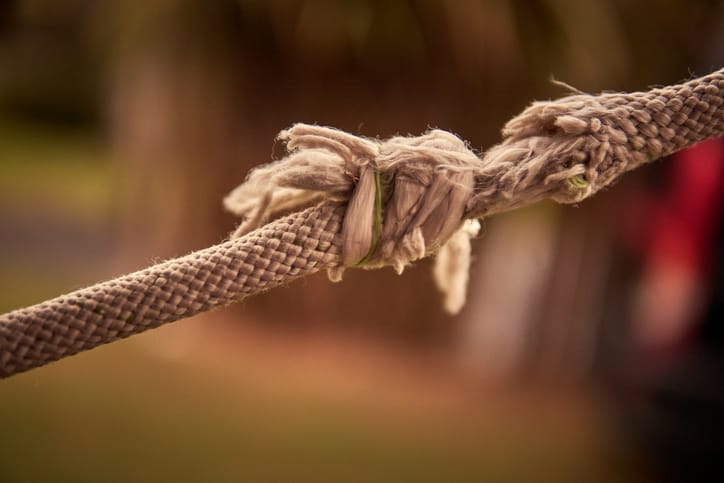The Unpredictable, The Fragile, The Broken, The Defiant

Happy Friday! What’s good?
My training, I will say, has been very good lately; I’m balancing the preparations for my spring half marathon with my powerlifting — something that, in the past, I’ve found quite hard to do. When I ramp up the running, my ability to add more weight to the bar each week declines rather precipitously. But lately, I’ve been doing both. On Thursday of last week, I was feeling so spry — it was one of those beautiful sunny winter days — that I ran a longer route than normal, around the whole Central Park loop. As I was barreling down the last few blocks to home, a man stepped into me — intentionally — and shoulder-checked me hard. I went flying. The guy didn’t even stop or turn around. He knew what he’d done. He’d meant to do it. He’d meant to show me who’s aloud to be strong and fast in public. It isn’t older women. And indeed, I’ve been feeling pretty weak and broken since. The palms of both hands were cut open by the pavement — the right hand (my dominant hand) pretty severely; my left knee and hip massively bruised. The abrasions on my hands have meant I can’t go to the gym or lift weights or swim. The injuries to my knees — my right knee started hurting on Saturday once the pain in my hands had subsided a bit — have forced me to back off the running.
It’s a reminder that, while I’ve found such solace in the rhythms of training since Isaiah died, that I cannot put all my mental health eggs in the running basket. It’s a reminder too of just how fragile we are. One minute, you’re feeling so strong. The next minute, you’re knocked down. (Literally. That fucking asshole.)
On Sunday, Kelvin Kiptum, whose 2023 world-record-setting marathon — 2:00:35 — was officially ratified by the World Athletics just last week, was killed in a car crash in Kenya. He died alongside his coach, Gervais Hakizimana. Kiptum had never run a marathon over 2 hours and 2 minutes. I'll type that again: Kiptum had never run a marathon over 2 hours and 2 minutes. He was poised to smash the two-hour barrier in the distance — something that many have long said could never be done. He was expected to medal in the Olympics this summer. He was so young — just 24, really just starting out with what seemed like an amazing career ahead of him — just as the career of fellow Kenyan, Eliud Kipchoge, the former world-record holder, begins to wind down. It felt, in Chicago, that the torch had been passed. And now, suddenly and shockingly, that torch is out.

Vox notes that traffic fatalities in Africa rose by 17% over the past decade, as they fell 5% overall worldwide. Cars are the antithesis of health technology.
Elsewhere in health and fitness tech: “Engineers are working to build better pulse oximeters,” says MIT Technology Review. I’m sure Apple is happy to hear this since it’s facing an import ban over an IP dispute over the current technology used in its watches. Via Techcrunch: “Fertility tracker Glow fixes bug that exposed users’ personal data.” At this stage, I reckon we should all know not to use fertility trackers, right? And even though last week’s news about the electric toothbrush botnet doesn’t appear to be true, we should probably avoid internet-connected household products too. “I tried the $2,500 full-body MRI that Kim Kardashian and Cindy Crawford are obsessed with. It may have benefits—but also some major downsides,” writes Alexa Mikhail in Fortune. Bless your heart, Wired, always with that positive spin on bad ideas: “23andMe Is Under Fire. Its Founder Remains ‘Optimistic’.” Also from Wired: “The City of Tomorrow Will Run on Your Toilet Water.” I’ve been reading (and writing) a lot about heart rate monitors lately, so this headline from New Scientist caught my eye: "Strap that tracks heart rate in pregnancy may predict premature births.” (Worth thinking about how maternal health gets turned into a tech trend.) “Ignore your fitness tracker and walk to Mordor instead,” writes Victoria Song in The Verge. I would but I’d rather walk somewhere with women, thanks.
Health and fitness tech adjacent, maybe: L. M. Sacasas on the Apple Vision Pro. Emily Dreyfuss on Zynbabwe. Via The New York Times: “How New Technology Changed Mahjong.”
(Un) health memes: Virginia Sole-Smith pens a takedown of the “1000 Hours Outside” trend that is apparently going around Mom-Tok (or wherever folks seem to learn about these memes). She links the demand to make sure your kids spend 2.7 hours (on average) outside every day to homeschooling, to Christian beliefs about the purity and sanctity of Nature, to white supremacy, and to diet culture’s demands to track and measure everything. I want to say more about this – not so much the "1000 Hours Outside" thing specifically, but rather this way that we are making all sorts of arguments against movement and exercise and for digital leisure in the name of fighting diet culture. I dunno... My thoughts aren't fully formed here at all though. So maybe I should keep my mouth shut.
The business of sports: Bloomberg reports that “Gyms Face Tough Year as Key January Growth Screeches to Halt.” Usually the uptick in gym memberships and attendance in January — New Year’s Resolutions, baby — drive growth for the rest of the year. Too many gym options? Too expensive? Too many digital workouts? Too many anti-Resolution memes? Slate has the latest WWE drama on “Why Everyone Suddenly Hates the Rock.” Via The Guardian: “Enhanced Games: drug-friendly sports competition gains prominence even as the backlash grows.” I’m really fascinated by tech investors’ backing of a pro-doping games. Is it related to their embrace of psychedelics too? All substances — from LSD to testosterone — are, to them, merely ways to become more efficient? Casey Neistat made a video on his quest to run a sub-3-hour marathon — “Sisyphus and the Impossible Dream.” (The moral of the story? Don’t give up. Also, pay for an Olympic athlete to be your running coach.) There was a big football game on Sunday. I did not watch.
I am not writing much about breakfast here these days, but I really love Anne Kadet’s writings about New York City, so here’s her story, “How I Learned to Love Dunkin' Donuts (And Why it Matters).” I do not love Dunkin’ Donuts — I think their coffee and their donuts are terrible. (The latter is truly a crime.) But you know what I hate even more? I bet you do.
Thanks for reading Second Breakfast. Consider becoming a paid subscriber and help support my thinking and writing about the future of health and fitness, one that draws less on TikTok memes and Peter Thiel's millions.





